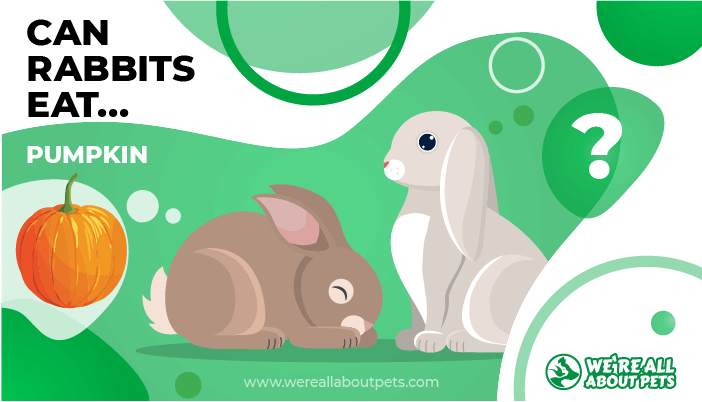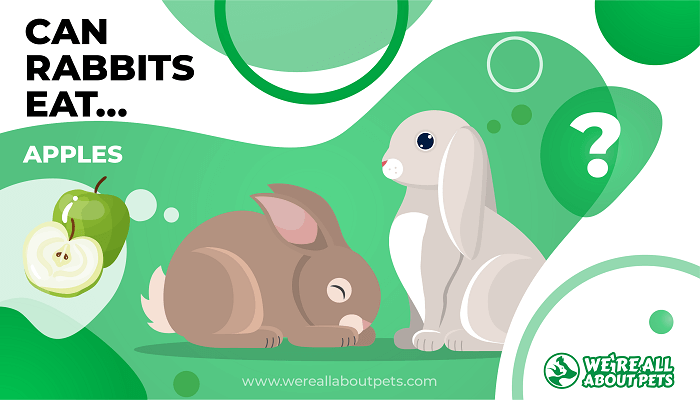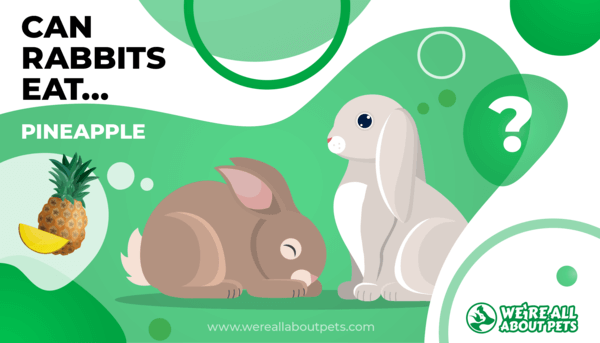Can Rabbits Eat Arugula?
This page contains affiliate links. We may earn money or products from the companies mentioned in this post through our independently chosen links, which earn us a commission. Learn More
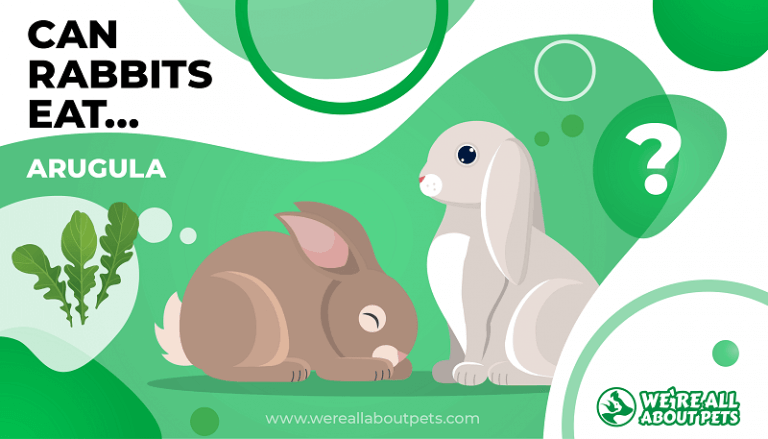
Arugula is a tasty salad green and if you enjoy it, you’re probably curious about whether it’s okay to share with your pet. Can rabbits have arugula? If so, how much can they have and how often can they eat it?
The quick answer to your question is “Yes!” Rabbits can have arugula, and it’s fairly good for them.
Don’t hop away just yet! There are limits to the amount of arugula rabbits can eat. In addition, this isn’t a food your bunny should have every day. Keep reading, because we are about to share everything we know about arugula for rabbits.
Arugula Nutrition Stats
If you like arugula, you’ll be happy to know that you can eat lots of it!
A one-half cup serving of raw arugula offers approximately:
- 5 calories
- .4 g carbohydrates
- .2 g fiber
- .1 g fat
- .3 g protein
Arugula Nutritional Facts
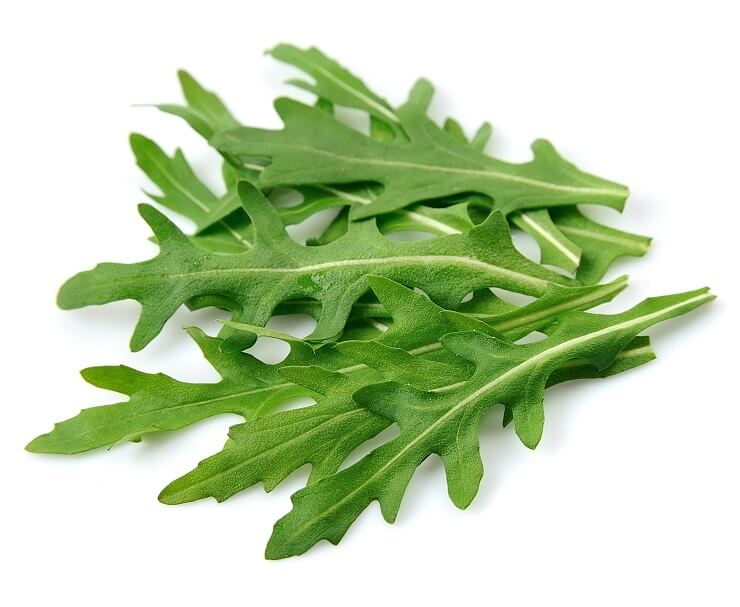
The more arugula you eat, the more nutrients you get! That same one-half cup serving of zesty arugula provides about:
- 5 mg vitamin C
- 237 iu vitamin A
- 9 mg potassium
- .1 mg iron
- 7 mcg folate
- 9 mcg vitamin K
- 16 mg calcium
- 7 mg magnesium
- 2 mg phosphorus
Can Rabbits Have Arugula?
Yes! Rabbits can have arugula in moderation. Be sure to choose fresh, un-wilted pieces of arugula for your rabbit. Wash the leaves well to remove any traces of soil or agricultural chemicals.
Is Arugula Good For Rabbits?
Absolutely! Arugula is great for rabbits. It contains lots of essential nutrients that can help keep your bunny in excellent shape.
At the same time, very important not to overdo it. Arugula is very high in calcium, which can build up in your rabbit’s system over time and combine with oxalates from vegetables.
When this happens, there’s an increased risk of bladder sludge and kidney stones. Rabbits do need calcium, but not too much.
Do Rabbits Like Arugula?
Most rabbits really like arugula, but there are a few that will turn their noses up at it. Some rabbits don’t seem to like the strong flavor of arugula.
How Much Arugula Can A Rabbit Eat?
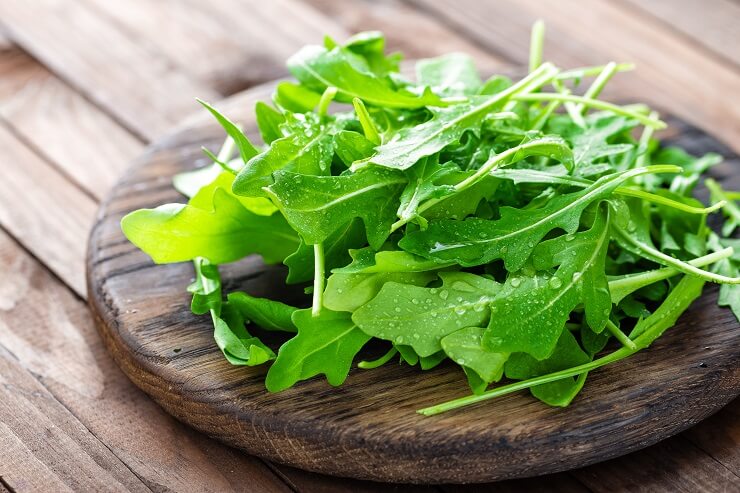
Remember what we said about calcium buildup? It’s important to limit your rabbits consumption of arugula and offer just the right amount.
With this in mind, here’s how much arugula to feed a rabbit:
| Age | Amount |
| Baby rabbit | None |
| Adult rabbit | 2 large arugula leaves or 3 small arugula leaves |
Since any new food can cause disruption to the balance of bacteria inside your rabbit’s digestive tract, it’s important to introduce arugula slowly.
If your rabbit already eats lots of leafy greens, feel free to give them half the recommended amount the first time they try arugula.
If your bunny doesn’t already eat leafy greens and other fresh foods, only give them one arugula leaf the first time it’s on their menu.
In both cases, observe your bunny over the next 24 hours, watching for signs of digestive distress. Look out for bloating, discomfort, or diarrhea. Arugula isn’t likely to cause any of these problems but it’s best to play it safe.
So long as your rabbit behaves normally and continues eating, drinking and pooping like usual, you can gradually increase the amount of arugula that you offer until they’re eating a full serving.
How Often Can A Rabbit Eat Arugula?
Since arugula is so high in calcium, you’ll want to limit your rabbit’s consumption. Don’t get us wrong – arugula is healthy for rabbits to eat – but overdoing it can cause problems.
Only give your rabbit arugula 2 to 3 times per week. It’s a great addition to their salad when mixed with other leafy greens. Just remember not to give your rabbit arugula in combination with other high calcium foods.
Reduce the amount of arugula you’re giving your rabbit if you notice that it seems to cause soft stools or abdominal bloating.
The Correct Diet is Important
We’re pretty sure that wild rabbits would jump at the chance to eat arugula if they encountered it in their natural habitat. A rabbit’s natural diet consists mostly of grasses and other plants that grow within easy reach.
With your rabbit’s health in mind, here are our recommendations for feeding your Bunny the right way:
- Clean, fresh water: Water is the cornerstone of a healthy diet for all animals, so be sure to make it available for your rabbit 24/7. Rinse and refill your rabbit’s water bottle every day.
- Rabbit pellets – Select a nutritionally complete, age-appropriate rabbit food for your bunny. The package will provide serving size information.
- Fresh hay such as Timothy – A rabbit’s natural diet consists mostly of grass. Since long grass fibers keep the digestive system moving, you’ll want to ensure that your bunny has ‘round the clock access to fresh hay.
- Approximately one cup of leafy green vegetables per two pounds of your rabbit’s body weight, plus a few crunchy veggies. Arugula makes a good addition to your rabbit’s “salad” a few times per week.
- One tablespoon of seeds such as pepitas, pumpkin seeds, and/or sunflower seeds unless they’re already mixed into your rabbit’s food.
- Colorful vegetables and very small portions of fruit. Offer only tiny amounts of fruit – no more than about a teaspoon per two pounds of your rabbit’s body weight.
If you’re brand-new to the world of bunnies, you might not know that rabbits’ teeth are constantly growing. Since your rabbit lives in a hutch and doesn’t have access to the woody plants wild rabbits eat, it’s very important to help them keep their teeth at the right length.
Don’t worry! This isn’t difficult: All you need to do is keep your bunny well supplied with safe, chewable items such as softwood sticks, coconut shells, and other rabbit toys. Hay cubes are a great choice, too.
What Are Other Healthy Alternatives To Arugula In A Rabbit’s Diet?
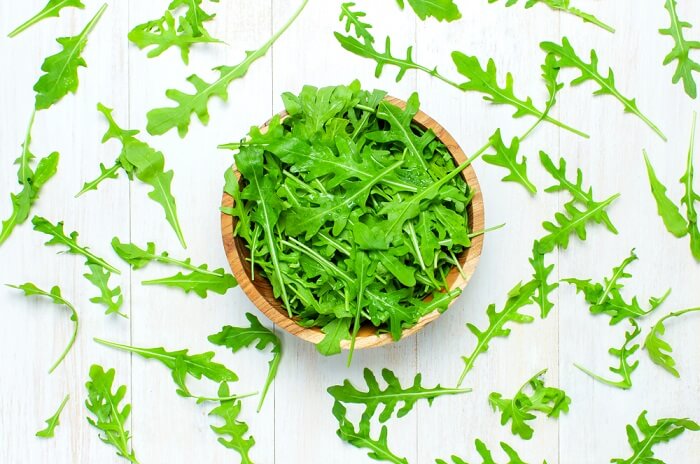
Since your bunny can’t eat arugula every day of the week, you’re probably looking for more inspiration.
Here are some ideas to help you plan a healthy menu for your rabbit:
- parsley
- sweet corn
- basil
- baby corn
- beets
- beet tops
- carrot
- carrot tops
- cucumber
- celery
- romaine
- cabbage
- butter lettuce
- rocket
- buttercrunch lettuce
- endive
- escarole
- spinach
- arugula
- swiss chard
- parsnip
- bibb lettuce
- green beans
- tomato
- watercress
- pumpkin
- zucchini
- winter squash
- summer squash
- bell pepper
- broccoli
- broccolini
There are lots of great choices here – but believe it or not, there are many other wonderful foods to feed your rabbit including a variety of fruits, vegetables, and herbs.
The best way to avoid foods that are toxic to rabbits and to ensure your rabbit’s good health is to take time out to investigate every new food you consider feeding your bunny. This way, you’ll sure your pet’s safety plus you’ll find out how much of each item to feed your rabbit.
For now, try giving your rabbit a little bit of arugula. Most bunnies love it!
Frequently Asked Questions
Is arugula safe for rabbits?
Yes – arugula is safe for rabbits. Just remember to wash it before you give it to your bunny, and rotate it with other greens to reduce the risk of calcium buildup.
Can arugula make my rabbit sick?
Yes, arugula can make a rabbit sick, but this isn't likely to occur. Play it safe by gradually introducing your rabbit to arugula and only offering the recommended amount. Limiting your rabbit's arugula intake – and limiting their consumption of high calcium foods in general – can help prevent long-term issues including bladder sludge and kidney stones.






